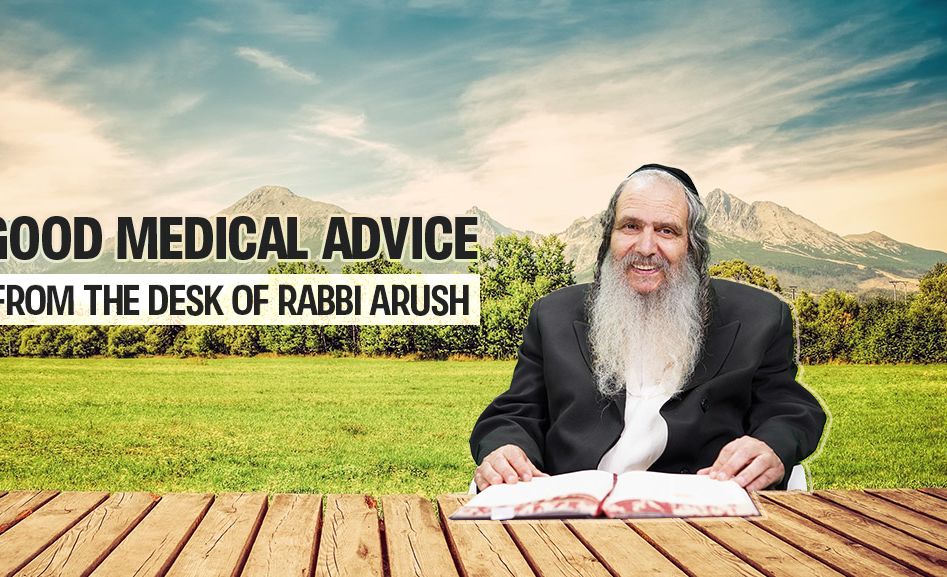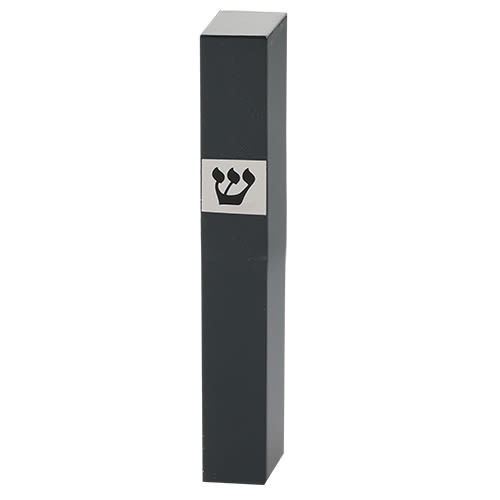
Standing Up To The Test
To live a life of holiness in this world, one must withstand a number of tests. For many people, this means a day-to-day struggle with...

Standing up to the Test – True Compassion for the Soul
To live a life of holiness in this world, one must withstand a number of tests. For many people, this means a day-to-day struggle with animalistic impulses and desires. This struggle is especially difficult because physical desires have a power to influence the mind and to magnify the allure of empty, fleeting pleasures until they appear more precious than our eternal reward in the World to Come. By resisting temptation, however, we redeem our souls forever. When we overcome our lower inclinations, we attach ourselves to the Source of Life, which is the greatest compassion we can show ourselves.
Most people have no inkling of what awesome matters may hang in the balance in a moment of temptation. There are souls in the next world that have been sentenced to undergo lengthy and painful processes of purification as a result of sins they committed during their lifetimes. Occasionally, such souls are given the opportunity to return to this world and accomplish the same purification by serving God through Torah and mitzvot. When such a person is subjected to a test and succeeds in overcoming his impulses, he is saving himself from unimaginable suffering in the next world. Is there any greater compassion? And yet the evil inclination turns this around and makes it seem that the person is being cruel to himself.
On the contrary, if he surrenders to temptation, he loses the opportunity to repair his soul, and inflicts new damage. To make matters worse, his sin brings into existence spiritual beings that can cause him terrible suffering in this world or the next. And yet the evil inclination presents this act of unparalleled self-destruction as an opportunity to “to be good to himself.” This is pure cruelty masquerading as compassion!
“The compassion of the wicked is cruel,” said Shlomo Hamelech (King Solomon) (Mishlei 12:10), for wickedness substitutes cruelty for compassion and compassion for cruelty. Rebbe Nachman refers to the verse: “Even the jackals draw out the breast to nurse their young, (but) the daughter of my people has become cruel…” (Eicha 4:3). He explains that the “jackals” are a symbol for the side of evil, which makes a great show of being compassionate: “See how it nurses the young!” it boasts. In truth, however, it is only capable of cruelty, and its goal is to destroy us. And if we allow ourselves to be deceived, it will also convince us that true compassion (“the daughter of my people”) is a form of cruelty (Loc cit.).
A good example is the mitzvah of prayer. Is there any greater expression of God’s love for us than the fact that He allows us to stand before Him and to pray for our life and soul, and that He listens to us? A person who gets up early in the morning and serves God enthusiastically with Torah and prayer can experience a lofty sense of delight which is a faint hint of the eternal goodness his soul acquires. And yet, the evil inclination will tell him that he’s being cruel to himself, that it would be kinder and wiser to stay in bed and sleep for a few more hours. Another trick of the evil inclination is to make the experience of prayer seem wearying and burdensome. “A person can conduct his business all day long without becoming tired,” remarks the Midrash, “but as soon as he has to pray, he feels exhausted.” (Midrash Eichah, Pisikta 10) All this is the “compassion of the wicked.”
Rebbe Nachman goes on to explain that true compassion is associated with God’s Name, Shaddai, as we see from the verse: “May El Shaddai give you mercy…” (Bereishit 43:14). This Divine Name is related to the Sefirah of Yesod, and hence it refers to a level of spirituality that a person can acquire only after he has succeeded in controlling and purifying his physical impulses.
Etymologically, the name is related to the verb “leShadeid,” which means “to destroy” or “to rearrange,” because it is associated with God’s power to “rearrange” the ordinary rules and patterns of spiritual influence and causality. According to those patterns, certain events may already be decreed for an individual, and the energy and resources that will be available to him may be limited. But when a person overcomes his physical impulses and “breaks through” his own natural patters of behaviour, God will act with the Name “Shaddai” to break through the ordinary rules of spiritual causality. For the benefit of such an individual, He will transform the entire system, with its decrees and restrictions, into a channel for unqualified Divine beneficence.
Rebuke – Only with True Compassion
We mentioned earlier that through prayer we are able to acquire true compassion. Hence if we use prayer to connect ourselves to God, and work hard to purify ourselves from physical desires, we can attain an awareness of God (Da’at) and a heart that is filled with true compassion. Then our voice will resonate with holiness, and will have the power to inspire and illuminate others. Only then will we be able to give rebuke to others, for we will be capable of bringing a wonderful fragrance to their souls – a scent from the Garden of Eden. The person we are trying to help will realize by himself that he has been following a path that is dark and bleak and leads only to suffering. When he realizes that there is something better, he will change the direction of his life and return to God.
It has been said about Rabbi Pinchos of Koretz that when someone came to him for spiritual guidance, he would never rebuke the person for his sins. The very fact that the person was seeking help already showed that he was spiritually trapped and unable to free himself on his own. Instead, Rabbi Pinchos would speak to him gently and share a bit of wisdom or even a joke or two. In this way he would gradually lead the person towards joy, which opens the mind to the light of wisdom. When the person began to sense a new light from above, a light of wisdom and holiness, he was able to see his problems in an entirely different perspective. At that point, he was capable of he lping himself (Midrash Pinchos, os 31).
To be continued…
(Excerpt from The Scent of Gan Eden, by Rabbi Yaakov Meir Shechter, Keren Ohr Publications. Used with author’s permission.)














Tell us what you think!
Thank you for your comment!
It will be published after approval by the Editor.